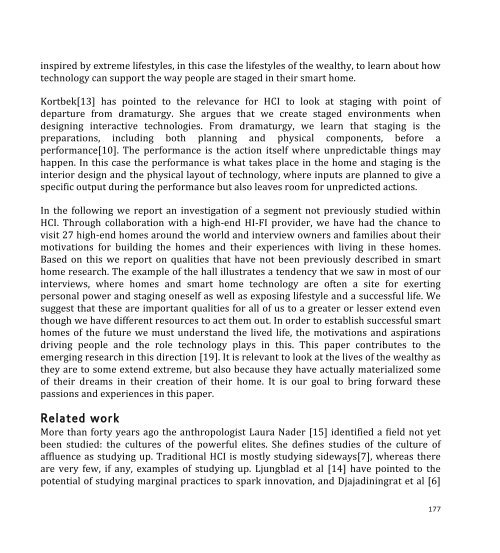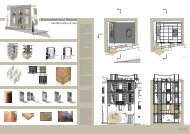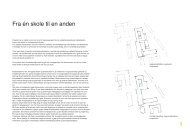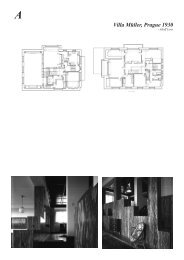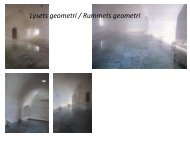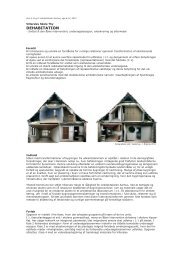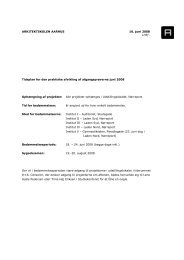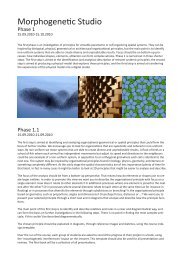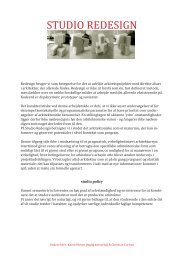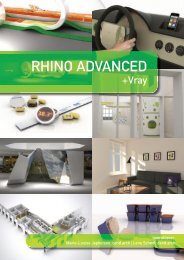-Tactics and Concepts for Highly Mobile People
-Tactics and Concepts for Highly Mobile People
-Tactics and Concepts for Highly Mobile People
Create successful ePaper yourself
Turn your PDF publications into a flip-book with our unique Google optimized e-Paper software.
inspired by extreme lifestyles, in this case the lifestyles of the wealthy, to learn about how<br />
technology can support the way people are staged in their smart home.<br />
Kortbek[13] has pointed to the relevance <strong>for</strong> HCI to look at staging with point of<br />
departure from dramaturgy. She argues that we create staged environments when<br />
designing interactive technologies. From dramaturgy, we learn that staging is the<br />
preparations, including both planning <strong>and</strong> physical components, be<strong>for</strong>e a<br />
per<strong>for</strong>mance[10]. The per<strong>for</strong>mance is the action itself where unpredictable things may<br />
happen. In this case the per<strong>for</strong>mance is what takes place in the home <strong>and</strong> staging is the<br />
interior design <strong>and</strong> the physical layout of technology, where inputs are planned to give a<br />
specific output during the per<strong>for</strong>mance but also leaves room <strong>for</strong> unpredicted actions.<br />
In the following we report an investigation of a segment not previously studied within<br />
HCI. Through collaboration with a high-‐end HI-‐FI provider, we have had the chance to<br />
visit 27 high-‐end homes around the world <strong>and</strong> interview owners <strong>and</strong> families about their<br />
motivations <strong>for</strong> building the homes <strong>and</strong> their experiences with living in these homes.<br />
Based on this we report on qualities that have not been previously described in smart<br />
home research. The example of the hall illustrates a tendency that we saw in most of our<br />
interviews, where homes <strong>and</strong> smart home technology are often a site <strong>for</strong> exerting<br />
personal power <strong>and</strong> staging oneself as well as exposing lifestyle <strong>and</strong> a successful life. We<br />
suggest that these are important qualities <strong>for</strong> all of us to a greater or lesser extend even<br />
though we have different resources to act them out. In order to establish successful smart<br />
homes of the future we must underst<strong>and</strong> the lived life, the motivations <strong>and</strong> aspirations<br />
driving people <strong>and</strong> the role technology plays in this. This paper contributes to the<br />
emerging research in this direction [19]. It is relevant to look at the lives of the wealthy as<br />
they are to some extend extreme, but also because they have actually materialized some<br />
of their dreams in their creation of their home. It is our goal to bring <strong>for</strong>ward these<br />
passions <strong>and</strong> experiences in this paper.<br />
Related work<br />
More than <strong>for</strong>ty years ago the anthropologist Laura Nader [15] identified a field not yet<br />
been studied: the cultures of the powerful elites. She defines studies of the culture of<br />
affluence as studying up. Traditional HCI is mostly studying sideways[7], whereas there<br />
are very few, if any, examples of studying up. Ljungblad et al [14] have pointed to the<br />
potential of studying marginal practices to spark innovation, <strong>and</strong> Djajadiningrat et al [6]<br />
177


